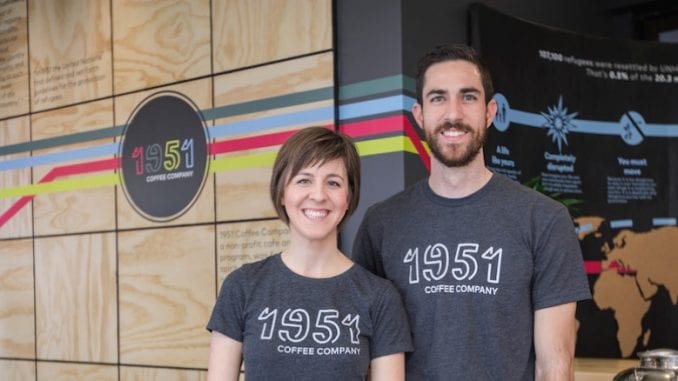
We talk to Doug Hewitt and Rachel Taber, the co-owners of 1951 Coffee Company, a nonprofit organization that provides job training and employment to the Bay Area’s refugee community.
BY CHRIS RYAN
BARISTA MAGAZINE ONLINE
Photos courtesy of 1951 Coffee.
In 2015, Doug Hewitt and Rachel Taber formed 1951 Coffee Company, a nonprofit organization with a cafe in Berkeley, Calif.’s Southside neighborhood. 1951 Coffee is devoted to promoting the well-being of the region’s refugee community through job training and employment. The company takes its name from the year the United Nations established its guidelines for the protection of refugees, and these ideals guide 1951 Coffee’s mission. We talked to Doug and Rachel about how they came to coffee, the process of getting the company off the ground, 1951’s mission, and more.
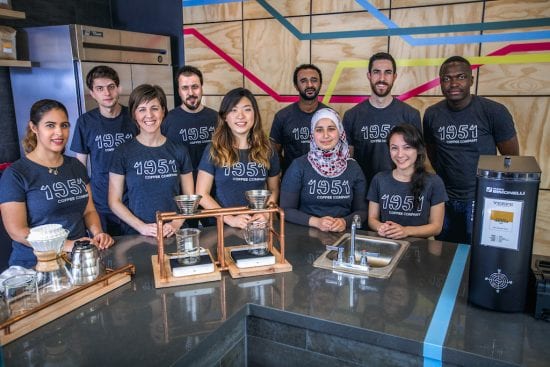
Chris Ryan: Tell me about your backgrounds—what was your experience with coffee before starting 1951?
Doug Hewitt: I started in the coffee industry in 2007 as a barista at Starbucks. In 2011, I began roasting coffee at Boot Coffee Consulting on a project called Aleta Wondo Coffee [in Ethiopia]. I did this for a year before changing industries to work in the refugee resettlement sphere. Three years later, I came back to coffee through starting 1951 Coffee Company with Rachel.
Rachel Taber: I worked as a barista in college and again just before we started 1951 Coffee Company. In between I remained a coffee lover, always searching for the best cup of coffee around.
CR: Why did you decide to start 1951 Coffee? How did the nonprofit come together?
RT: We started 1951 Coffee Company in response to a need that we had seen in refugee resettlement. Refugees arrive and need to secure employment as soon as possible. This provides little time for social or cultural adjustment, and the jobs usually acquired are seldom able to meet the needs of a family. We provide an opportunity to newly arrived refugees to gain a marketable skill and a more forward-facing position than they would often get. We decided to start as a nonprofit because we wanted to keep refugees at the heart of all we are doing.
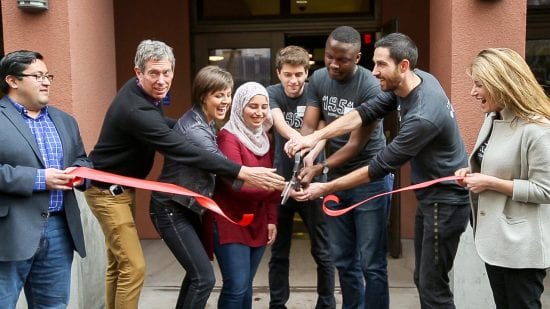
CR: Why was working with refugees a focus for you?
DH: Rachel and I both worked in refugee resettlement for a number of years. We have a heart for this population and saw the challenges that they faced in starting a new life here in the United States. We knew the qualities and determination of refugees in creating a new life, and we wanted to give them the supported needed to make that successful.
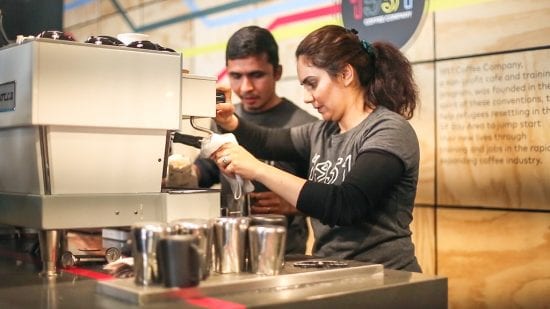
CR: What has been your experience balancing the coffee part of the business with the social justice side?
RT: We started 1951 Coffee intentionally choosing to be in the specialty-coffee industry. We wanted to show that not only could refugees work in the United States, but that from a very early stage they could work in a high-quality industry and do it well. We know that for our staff, in their early weeks of employment we have to provide a higher level of support and latitude for them to adjust. In order to do so, we have off-site training that allows our staff to acquire the technical and cultural skills in a lab environment before having to perform in front of a customer. This allows us to do a lot of repetition and even work through a lot of mistakes without the added pressure of customers waiting to get their beverages. This kind of training in a safe space enables our baristas to relax and enjoy the process of learning to make coffee, which infuses the process with more quality.
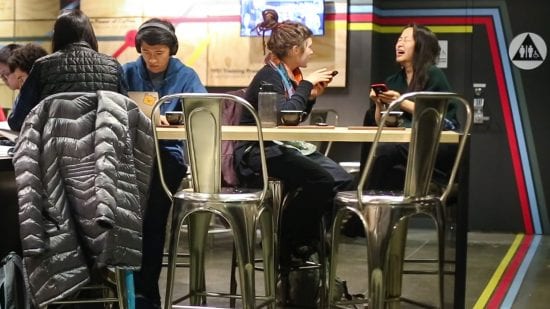
CR: Overall, how have the last two years been in starting and operating 1951? What has the response been from the community?
DH: There certainly have been challenges, but we have found great support in our community. We have had a number of community members step out and show support through offering services to help us make an amazing cafe space. Montaag Design and Landmark Graphix collaborated with us and refugees in our community to help us design an amazingly positive space for customers that helps us promote our mission to each person who enters.
When we first opened, we planned to attract customers through great coffee, and then have them learn about our social mission. However, we could never have imagined the confluence of geopolitical events that would happen at the beginning of this year. After the first travel ban, people came to our cafe to show support for the refugee community. It was one of the few public intersections of the refugee community and our larger society. People came in and were surprised that not only were we supporting refugees, but we were actually making great coffee as well.

